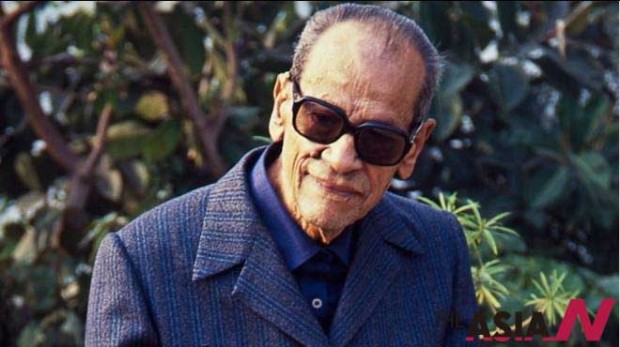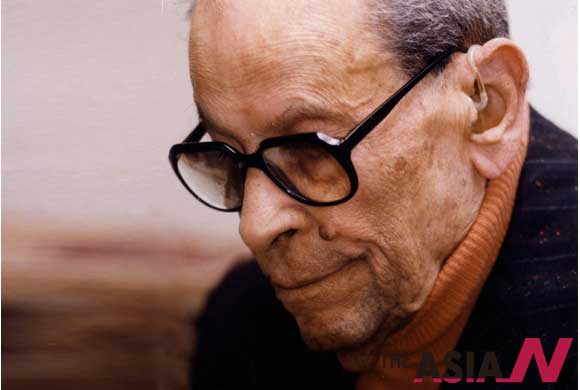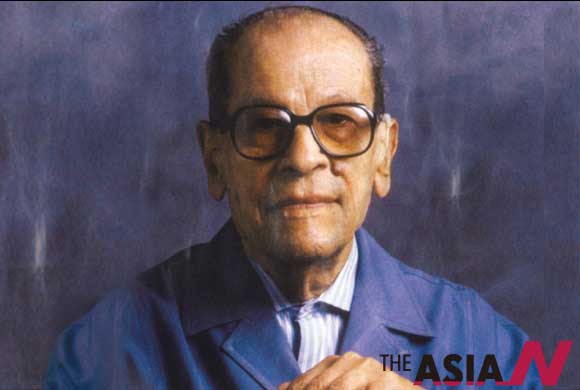Naguib Mahfouz, Egypt’s national writer true to Islam spirit
Some people described him as a wise man, others called him a motivation, others liked his philosophical works and completely adored him, while others didn’t like him at all; that is the Nobel prize winner Egyptian writer Naguib Mahfouz. His birthday has come up and it is time that we remember Egypt’s greatest writer.
Mahfouz lived in a country overfilled with schizophrenia, he even tried to overcome it his whole life. It appeared during the speech he wrote at the Nobel Prize ceremony, he said “I’m the son of two nations, merged decades ago successfully, the first nation is 7000 years old, the Pharaoh civilization, the second one is 1400 years old, the Islamic civilization.”
Despite the way Mahfouz represents many different faces in his work, his life is a reflection of his writings not vice versa. His life has always been so quiet, without any turnings that could make any exciting book. He was specialized in writing about the “Bully” of the Egyptian lanes, to become afterwards a bully in his own field, literature.
He was the first Arab to win Nobel Prize in literature, his bully-like effects on fellow writers was obvious, he befriended them and taught them all of his secrets.
In the life of Mahfouz, many moments were worth to remember, especially two moments. The first moment is when his daughters went to receive the Nobel Prize on his behalf, and he had written a speech to be said on his behalf at the Swedish academy. In his speech he is truly one of his bullies but in a good way, he said “Save the hungry in Africa, Save the Palestinian from the bullets and torture, save the Israeli from tainting their heritage, save those in debt from the economy laws”.
One of his students, the big writer Yehia Haa’y said that, “the Nobel prize is like the people’s poll to choose Mahfouz as Egypt’s Number 1 writer, as every small shop that I’ve gone into were happy for him, that’s when I knew that people started caring for literature. Also from the people that Mahfouz made an impact on is the critic Mostafa Kamal Saad whose entire studies later on were about Naguib Mahfouz’s works.
The second memorable moment is the assassination attempt, on the 24th of October, 1994 after one of his lectures in Casino Al Nile, a young man approached him and he never suspected him, how could he? Dr. Jaber Asfour said about him “What could he, an old man with troubles in seeing, hearing and moving, a man who managed to gain the love of many people, why would he be afraid.”
The young man took out a knife and stabbed Mahfouz in his neck more that once and left it there and ran away. What’s sad is that when the young man heard that Mahfouz survived the attack he interpreted it as a mistake from him because he didn’t say Allah name before he tried to kill him.
This is part of the schizophrenia our society lives in, that Mahfouz tried to avoid. That young man represents the way most people are in Egypt. Apparent religiosity and inner dissolution, the way that certain people could use the youth to achieve their aims and mislead them in order to kill innocent people or take innocent lives.
Like Paris is related to Baudelaire and Kami, Buenos Aries to Marquez, Prague to Kafka, Cairo is related to Mahfouz. He managed to put an entire country’s sufferings and history and blessings in one lane. All his work also shows that he’s forever related to Old Cairo and the old times mainly, that’s why it has always been his muse and his inspiration. He’s one of the few writers who believe that literature should have a message and an aim. He can be considered as the founding father to the art of Arabic Novel, and showed that it’s all about experiences.
The Egyptian lane as he showed is an essential part in our lives and it doesn’t really differ from the one in Syria, Iraq or Algeria, he showed us that we’re all Arab no matter what our nationalities are.
He also has a variety in styles of writing; he used almost everything starting with Flashbacks, to different voices, storytelling, to using old heritage. His novels can be a guide to archaeologists, as it’s considered as descriptive maps to places that’s about to disappear, which is the Egyptian lane.
Mahfouz, through impersonating the Egyptian lane, managed to show a social phenomenon in the east, which is the rise and fall of empires due to inner factors.

























































